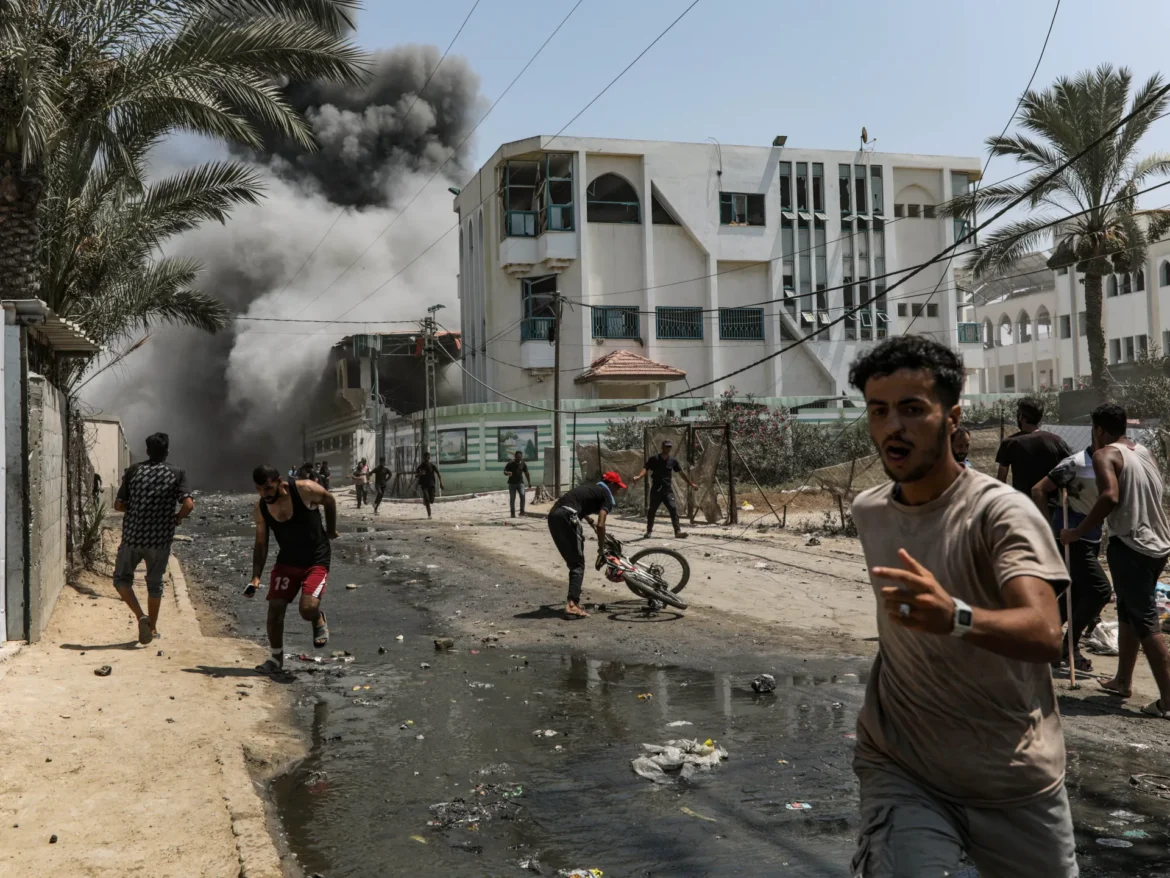By Staff Reporter
Beirut: Israel announced it had killed the commander of Hezbollah’s elite unit in a strike Friday that Lebanese officials said left 12 dead and dozens wounded in the militant group’s Beirut stronghold.
Ibrahim Aqil, who was also wanted by the United States for involvement in the 1983 bombing of the US embassy in Beirut, headed the Iran-backed group’s elite Radwan unit.
AFP journalists at the scene said the blast had left a massive crater and gutted the lower floors of a high-rise building in the Lebanese capital’s southern suburbs, a Hezbollah bastion.
The killing of Aqil was the second of a senior Hezbollah commander since the start of the war in Gaza, following another Israeli strike in Beirut that killed Fuad Shukr in July.
It also came after two waves of explosions, on Tuesday and Wednesday, of communication devices used by Hezbollah members, which Hezbollah blamed on Israel, that killed dozens and left Hezbollah reeling while dramatically shifting the focus of the Israel-Hamas war northwards.
The Israeli military said Friday it conducted a “targeted strike” to kill Aqil and which also killed around 10 other senior Radwan commanders.
Lebanon’s health ministry said the attack killed 12 people and wounded 66 more.
Earlier, a source close to Hezbollah, requesting anonymity to discuss sensitive matters, said the strike had killed Aqil.
“The Israeli air strike killed Radwan Force commander Ibrahim Aqil, its armed force’s second-in-command after Fuad Shukr,” the source close to Hezbollah said.
Hezbollah has not officially confirmed his death, but it said after the strike that it targeted with rockets an Israeli intelligence base it blamed for unspecified “assassinations”.
The United States had offered a $7 million reward for information on Aqil, describing him as a “principal member” of the organisation that claimed the 1983 embassy bombing, which killed 63 people.
Communication device explosions
The focus of Israel’s firepower for nearly a year has been on Gaza, but with Hamas much weakened, the focus of the war has shifted dramatically to Israel’s northern border.
Months of near-daily border clashes have killed hundreds in Lebanon, most of them fighters, and dozens in Israel, and forced thousands on both sides to flee their homes.
On Tuesday and Wednesday, Hezbollah was hit by an unprecedented attack that it has blamed on Israel, though Israel has yet to comment.
The attack saw thousands of Hezbollah operatives’ communication devices explode across two days, killing 37 people and wounding thousands more.
Hezbollah chief Hassan Nasrallah vowed on Thursday that Israel would face retribution for the blasts.
Earlier Friday, Israel said Hezbollah had fired dozens of rockets from Lebanon following air strikes which destroyed dozens of the militant group’s launchers.
While, Hezbollah said it targeted at least six Israeli military bases with salvos of rockets after overnight bombardment that people in south Lebanon described as among the fiercest so far.
Calls for restraint
International mediators have been scrambling to stop the Gaza war from turning into an all-out regional conflict.
US Secretary of State Antony Blinken, who has tried to salvage efforts for a Gaza ceasefire and hostage release deal, called for restraint on all sides.
“We don’t want to see any escalatory actions by any party” that would endanger the goal of a Gaza ceasefire, he said.
Source: Aljazeera


